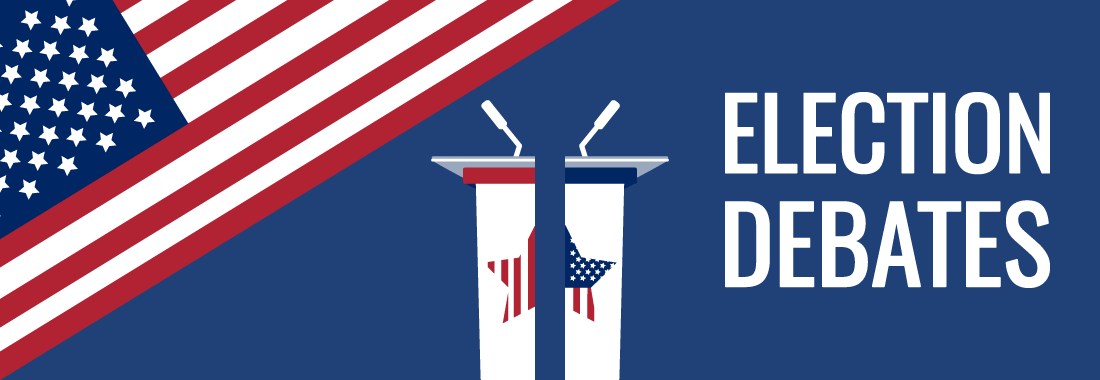Author: Dr. Emily Stacey, Rose State College
This election year (amazingly enough) has been more volatile and uncivil than the 2016 race. Many of my younger students are perplexed as to how to engage in healthy civic discourse that remains civil.
Political emotions are running high amid a pandemic, unstable economy and the amplification of fringe voices in our media (Antifa, the Proud Boys, etc.). Fostering and facilitating productive conversation with our students is critical in the field of Political Science, particularly in the freshman Government course that everyone takes.
If you’re planning to discuss presidential debates in your course, here are some of my tips and tricks I’ve accumulated over nearly a decade teaching Political Science:
Preface the conversation.
To start, you as the professor should briefly summarize and “unpack” the debate, while doing so, steer the conversation by choosing moments or policies of interest from the debate that will become the focal point of conversation.
Ask students about their overall debate-watching experience.
Open the conversation to the class by asking about their overall experience of the debate. Ask them to consider tone, timbre, things they noticed that they liked or did not like, etc.
This will start slowly. At first, only those who are particularly tuned-in will participate. But, as the conversation goes on and becomes more topical, more students will involve themselves.
Relate topics back to course content.
Build on the discussion by asking questions that relate back to the course content/materials. This makes the conversation accessible to everyone in the class.
Provide a safe space for open discussion.
Provide an open forum, with stated rules, such as no racism, prejudice, etc., for all sides of the political spectrum to be heard. I do this on the first day of class in my syllabus discussion.
Don’t be afraid to have these conversations!
While the environment we teach in tells us we’re indoctrinating students, having these conversations is critical to maintaining a thriving democracy. Not everyone will agree.
We can encourage these discussions about political and presidential debates without showing our personal political positions. The onus is on the Political Science professors around the country to illuminate the truth in politics. This helps us to develop well-informed, participatory citizens.
For further insights and peer-tested tips on teaching an effective course, check out our full library of professional development resources.

